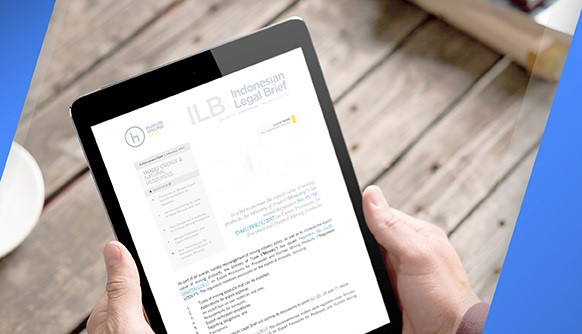
In order to realize Indonesia's commitment to the mainstreaming of business and human rights at the national level, as well as the implementation of Indonesia’s Sustainable Development Goals, the government has recognized the importance of formulating a National Strategy on Business and Human Rights (“BHR Strategy”), which has now been formally set out through the promulgation of Regulation of the President No. 60 of 2023 (“Regulation 60/2023”).
At its core, the establishment of a BHR Strategy is aimed at a more effective and comprehensive promotion, protection and fulfillment of human rights during business practices. In this edition of Indonesian Legal Brief, our analysis of Indonesia’s new BHR Strategy has been based on the framework of Regulation 60/2023 and highlights the following matters:
Basis of the BHR Strategy
At its core, the BHR Strategy adopts the main pillars of the United Nations Guiding Principles on Business and Human Rights, as summarized below:

In formulating its BHR Strategy, the government has applied four different methods, as summarized below:

Key Points of the BHR Strategy
At its core, the BHR Strategy encompasses the following aspects: 1) State obligation to protect; 2) Business responsibility to respect; and 3) Effective reparations for victims of direct or indirect human rights violations.
Prior to determining the key points of the BHR Strategy, the government identified several existing challenges along with several areas of focus that are expected to be strengthened through the BHR Strategy. Summarized below are the priority areas of focus that will be strengthened through the issuance of the BHR Strategy:

Summarized below are the key elements of the BHR Strategy, which have been based upon the above-described priority areas of focus:

Implementation of the BHR Strategy
The BHR Strategy will be implemented through Business and Human Rights Action (Aksi Bisnis dan Hak Asasi Manusia – “BHR Action”), which will be effective for a three-year period between 2023 and 2025.
Furthermore, it is expected that during its implementation, the BHR Strategy will be able to serve as a set of guidelines for business actors and other stakeholders regarding respect for human rights within the business sector, as well as for the government as regards the planning, implementation and monitoring of the development of business and human rights.
In order to ensure the adequate implementation of the BHR Strategy, the government will establish the Business and Human Rights Task Force (Gugus Tugas Bisnis dan Hak Asasi Manusia – “BHR Task Force”), which will be chaired by the Minister of Law and Human Rights (“Minister”) with the involvement of various other ministries/agencies and non-governmental parties. Branches of the BHR Task Force will also be established at the provincial level in order to further ensure the implementation of the BHR Strategy.
The monitoring and evaluation of the implementation of BHR Action will be carried out by the BHR Task Force, which will also be required to submit annual reports on said implementation to the Minister every September. Members of the general public will also be able to participate in the implementation of BHR Action.
Regulation 60/2023 has been in force since 26 September 2023.
Source : hukumonline.com.



National Economy
Regional Economy
National Economy
Regional Economy